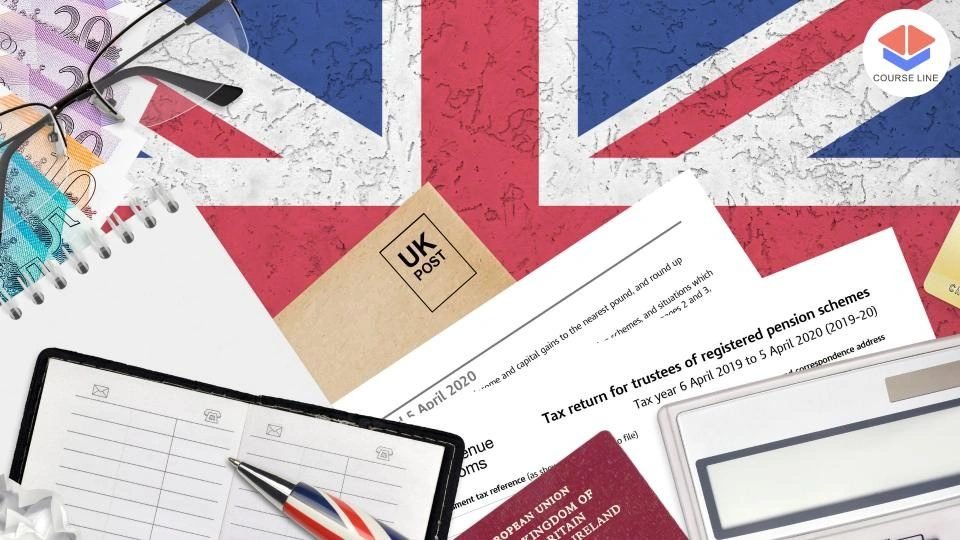Completing this course opens the door to careers such as property law assistant, conveyancing executive, legal advisor in real estate, or estate planning consultant. It also serves as a solid foundation for further study toward becoming a licensed solicitor or legal executive specialising in property and land law.
Course Features
Price
Study Method
Online | Self-paced
Course Format
Reading Material - PDF, article
Duration
2 hours, 56 minutes
Qualification
No formal qualification
Certificate
At completion
Additional info
Coming soon
- Share
Overview
The Property Law in the UK course is a comprehensive programme designed to introduce learners to the core principles and legal rules governing property in the UK. Starting with an introduction to property law, the course explores the distinction between various forms of property ownership, the legal significance of registered and unregistered land, and the rights and interests that arise in both private and commercial property dealings. It also examines the historical and modern evolution of property law, helping learners grasp its current relevance within the UK legal system.
As students progress, they will delve into more specific areas such as land possession, co-ownership, and leases, along with bailment and licensing of property. These modules equip learners with the ability to distinguish between exclusive ownership and shared rights and provide clarity on the legal obligations and privileges that arise from tenancy agreements and property access permissions. Special focus is given to the mortgage system in the UK, the implications of default, and the relevant consumer protections.
Furthermore, the course discusses proprietary estoppel, a crucial concept for establishing equitable interests in property, and introduces the concept of security interests under the Personal Property Securities Register (PPSR). Learners will also explore the importance of insurance and risk management in maintaining property value and protecting ownership.
By the end of the course, students will have a thorough understanding of the fundamental and advanced concepts that underpin property law in the UK. They will be able to interpret legal documents, advise on land disputes, and navigate complex property transactions with confidence.
This course is ideal for aspiring solicitors, legal assistants, paralegals, property managers, estate agents, and law students who want to deepen their knowledge of UK property law. It is also suitable for investors and landlords seeking legal clarity on their rights and responsibilities.
No prior legal knowledge is required, although a basic understanding of UK law or property management can be advantageous. A strong interest in legal studies and property-related matters will enhance the learning experience.
Who is this course for?
The Property Law in the UK course is a comprehensive programme designed to introduce learners to the core principles and legal rules governing property in the UK. Starting with an introduction to property law, the course explores the distinction between various forms of property ownership, the legal significance of registered and unregistered land, and the rights and interests that arise in both private and commercial property dealings. It also examines the historical and modern evolution of property law, helping learners grasp its current relevance within the UK legal system.
As students progress, they will delve into more specific areas such as land possession, co-ownership, and leases, along with bailment and licensing of property. These modules equip learners with the ability to distinguish between exclusive ownership and shared rights and provide clarity on the legal obligations and privileges that arise from tenancy agreements and property access permissions. Special focus is given to the mortgage system in the UK, the implications of default, and the relevant consumer protections.
Furthermore, the course discusses proprietary estoppel, a crucial concept for establishing equitable interests in property, and introduces the concept of security interests under the Personal Property Securities Register (PPSR). Learners will also explore the importance of insurance and risk management in maintaining property value and protecting ownership.
By the end of the course, students will have a thorough understanding of the fundamental and advanced concepts that underpin property law in the UK. They will be able to interpret legal documents, advise on land disputes, and navigate complex property transactions with confidence.
This course is ideal for aspiring solicitors, legal assistants, paralegals, property managers, estate agents, and law students who want to deepen their knowledge of UK property law. It is also suitable for investors and landlords seeking legal clarity on their rights and responsibilities.
No prior legal knowledge is required, although a basic understanding of UK law or property management can be advantageous. A strong interest in legal studies and property-related matters will enhance the learning experience.
Completing this course opens the door to careers such as property law assistant, conveyancing executive, legal advisor in real estate, or estate planning consultant. It also serves as a solid foundation for further study toward becoming a licensed solicitor or legal executive specialising in property and land law.
Requirements
The Property Law in the UK course is a comprehensive programme designed to introduce learners to the core principles and legal rules governing property in the UK. Starting with an introduction to property law, the course explores the distinction between various forms of property ownership, the legal significance of registered and unregistered land, and the rights and interests that arise in both private and commercial property dealings. It also examines the historical and modern evolution of property law, helping learners grasp its current relevance within the UK legal system.
As students progress, they will delve into more specific areas such as land possession, co-ownership, and leases, along with bailment and licensing of property. These modules equip learners with the ability to distinguish between exclusive ownership and shared rights and provide clarity on the legal obligations and privileges that arise from tenancy agreements and property access permissions. Special focus is given to the mortgage system in the UK, the implications of default, and the relevant consumer protections.
Furthermore, the course discusses proprietary estoppel, a crucial concept for establishing equitable interests in property, and introduces the concept of security interests under the Personal Property Securities Register (PPSR). Learners will also explore the importance of insurance and risk management in maintaining property value and protecting ownership.
By the end of the course, students will have a thorough understanding of the fundamental and advanced concepts that underpin property law in the UK. They will be able to interpret legal documents, advise on land disputes, and navigate complex property transactions with confidence.
This course is ideal for aspiring solicitors, legal assistants, paralegals, property managers, estate agents, and law students who want to deepen their knowledge of UK property law. It is also suitable for investors and landlords seeking legal clarity on their rights and responsibilities.
No prior legal knowledge is required, although a basic understanding of UK law or property management can be advantageous. A strong interest in legal studies and property-related matters will enhance the learning experience.
Completing this course opens the door to careers such as property law assistant, conveyancing executive, legal advisor in real estate, or estate planning consultant. It also serves as a solid foundation for further study toward becoming a licensed solicitor or legal executive specialising in property and land law.
Career path
The Property Law in the UK course is a comprehensive programme designed to introduce learners to the core principles and legal rules governing property in the UK. Starting with an introduction to property law, the course explores the distinction between various forms of property ownership, the legal significance of registered and unregistered land, and the rights and interests that arise in both private and commercial property dealings. It also examines the historical and modern evolution of property law, helping learners grasp its current relevance within the UK legal system.
As students progress, they will delve into more specific areas such as land possession, co-ownership, and leases, along with bailment and licensing of property. These modules equip learners with the ability to distinguish between exclusive ownership and shared rights and provide clarity on the legal obligations and privileges that arise from tenancy agreements and property access permissions. Special focus is given to the mortgage system in the UK, the implications of default, and the relevant consumer protections.
Furthermore, the course discusses proprietary estoppel, a crucial concept for establishing equitable interests in property, and introduces the concept of security interests under the Personal Property Securities Register (PPSR). Learners will also explore the importance of insurance and risk management in maintaining property value and protecting ownership.
By the end of the course, students will have a thorough understanding of the fundamental and advanced concepts that underpin property law in the UK. They will be able to interpret legal documents, advise on land disputes, and navigate complex property transactions with confidence.
This course is ideal for aspiring solicitors, legal assistants, paralegals, property managers, estate agents, and law students who want to deepen their knowledge of UK property law. It is also suitable for investors and landlords seeking legal clarity on their rights and responsibilities.
No prior legal knowledge is required, although a basic understanding of UK law or property management can be advantageous. A strong interest in legal studies and property-related matters will enhance the learning experience.
Completing this course opens the door to careers such as property law assistant, conveyancing executive, legal advisor in real estate, or estate planning consultant. It also serves as a solid foundation for further study toward becoming a licensed solicitor or legal executive specialising in property and land law.
-
- Introduction to Property Law 00:10:00
-
- Land Law Principles- Rights and Interests 00:10:00
- Registered and Unregistered Land 00:11:00
- Co-Ownership in Property 00:10:00
- Property Law: License 00:10:00
- Insurance for Property Maintenance 00:10:00
- Security Interests in Property/ Personal Property Securities Register 00:10:00
- Premium Certificate 00:15:00

No Reviews found for this course.
Is this certificate recognized?
Yes, our premium certificate and transcript are widely recognized and accepted by embassies worldwide, particularly by the UK embassy. This adds credibility to your qualification and enhances its value for professional and academic purposes.
I am a beginner. Is this course suitable for me?
Yes, this course is designed for learners of all levels, including beginners. The content is structured to provide step-by-step guidance, ensuring that even those with no prior experience can follow along and gain valuable knowledge.
I am a professional. Is this course suitable for me?
Yes, professionals will also benefit from this course. It covers advanced concepts, practical applications, and industry insights that can help enhance existing skills and knowledge. Whether you are looking to refine your expertise or expand your qualifications, this course provides valuable learning.
Does this course have an expiry date?
No, you have lifetime access to the course. Once enrolled, you can revisit the materials at any time as long as the course remains available. Additionally, we regularly update our content to ensure it stays relevant and up to date.
How do I claim my free certificate?
I trust you’re in good health. Your free certificate can be located in the Achievement section. The option to purchase a CPD certificate is available but entirely optional, and you may choose to skip it. Please be aware that it’s crucial to click the “Complete” button to ensure the certificate is generated, as this process is entirely automated.
Does this course have assessments and assignments?
Yes, the course includes both assessments and assignments. Your final marks will be determined by a combination of 20% from assignments and 80% from assessments. These evaluations are designed to test your understanding and ensure you have grasped the key concepts effectively.
Is this course accredited?
We are a recognized course provider with CPD, UKRLP, and AOHT membership. The logos of these accreditation bodies will be featured on your premium certificate and transcript, ensuring credibility and professional recognition.
Will I receive a certificate upon completion?
Yes, you will receive a free digital certificate automatically once you complete the course. If you would like a premium CPD-accredited certificate, either in digital or physical format, you can upgrade for a small fee.
Course Features
Price
Study Method
Online | Self-paced
Course Format
Reading Material - PDF, article
Duration
2 hours, 56 minutes
Qualification
No formal qualification
Certificate
At completion
Additional info
Coming soon
- Share
{"title":"","show_title":"0","post_type":"course","taxonomy":"","term":"0","post_ids":"","course_style":"random","featured_style":"course4","masonry":"","grid_columns":"clear1 col-md-12","column_width":"268","gutter":"30","grid_number":"3","infinite":"","pagination":"","grid_excerpt_length":"100","grid_link":"1","grid_search":"0","course_type":"","css_class":"","container_css":"","custom_css":""}
Care Certificate standards 1-15
Course Line256£490.00Original price was: £490.00.£14.99Current price is: £14.99.Mexican Cooking Level 3 Advanced Diploma
Course Line237£490.00Original price was: £490.00.£14.99Current price is: £14.99.





